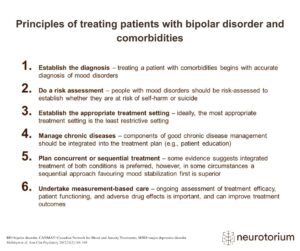Bipolar disorder is often a progressive disease characterized by recurrent mood episodes punctuating a background of persistent functioning impairments.1 Because of this progressive nature, and the effect that symptoms can have on patient functioning, helping patients with bipolar disorder to improve their functioning is important.2 Moreover, some have argued that preventing or stalling the progression of bipolar disease can and should be a clinical goal.3





